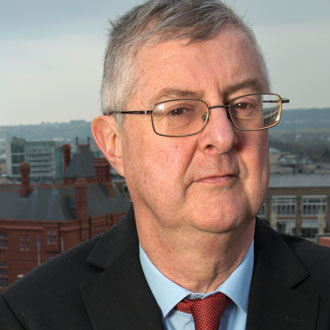Welsh Government announces £240m boost to NHS funding

The Welsh Government has announced an additional £240m for the NHS in its draft budget for 2017-18.
Finance secretary Mark Drakeford also announced a £7m investment towards training extra healthcare professionals.
Mr Drakeford told the National Assembly the government was doing all it could to protect public services at a time of ongoing budget cuts and uncertainty which meant they could only put forward a one-year budget.
It comes as a report from the Health Foundation think tank predicts a financial black hole of £700m in the Welsh NHS budget over the next three years.
The Royal College of GPs said an increase in the health budget was good news but stressed the additional funding needed to be directed to general practice.
RCGP Wales chair Dr Rebecca Payne said general practice was woefully under-resourced and having to deal with increasing workload.
She said: ‘We calculate that by the end of the current Assembly term in 2021/22 we need to see an additional £297 million invested in general practice, and this budget needs to take a significant step towards this.
‘Patients need better access to their family doctor and unless things change, they face longer waiting times and the risk of problems remaining undiagnosed.’
She added that there was an urgent need to embark on an ambitious recruitment campaign and an increase in GP training places in Wales to 200 a year.
‘To ensure we are able to continue to provide the very best service for our patients, I urge the Welsh government to grasp this opportunity to secure a strong, safe and sustainable future for general practice in Wales.’
The draft budget also includes an additional £16m for a new treatment fund, £1m for end of life care services and £1m for eating disorders and transgender services.
Planned investment in infrastructure over the next four years will include £1bn to spend on NHS buildings.
BMA Wales chair Dr Philip Banfield cautiously welcomed the budget and said the commitment to spend more on health next year ‘redresses a previous underspend’.
He added that the Health Foundation report made it clear that demand for health services in Wales was outstripping resources and the focus needs to be on finding more efficient ways to deliver care.
‘The benefit of this commitment must be maximised by ensuring that health boards work proactively to get the money quickly to the front line services – providing adequate beds and staff and engaging with their clinical experts to design services that are fit for purpose and sustainable,’ he added.
Dr Banfield said he hoped commitments in the budget to train more healthcare professionals would include doctors.
‘Further to this, we know that general practice in particular is facing unprecedented challenges.
‘We hope that in delivering this budget the Welsh Government will ensure that sufficient investment is made in supporting primary care services.’









